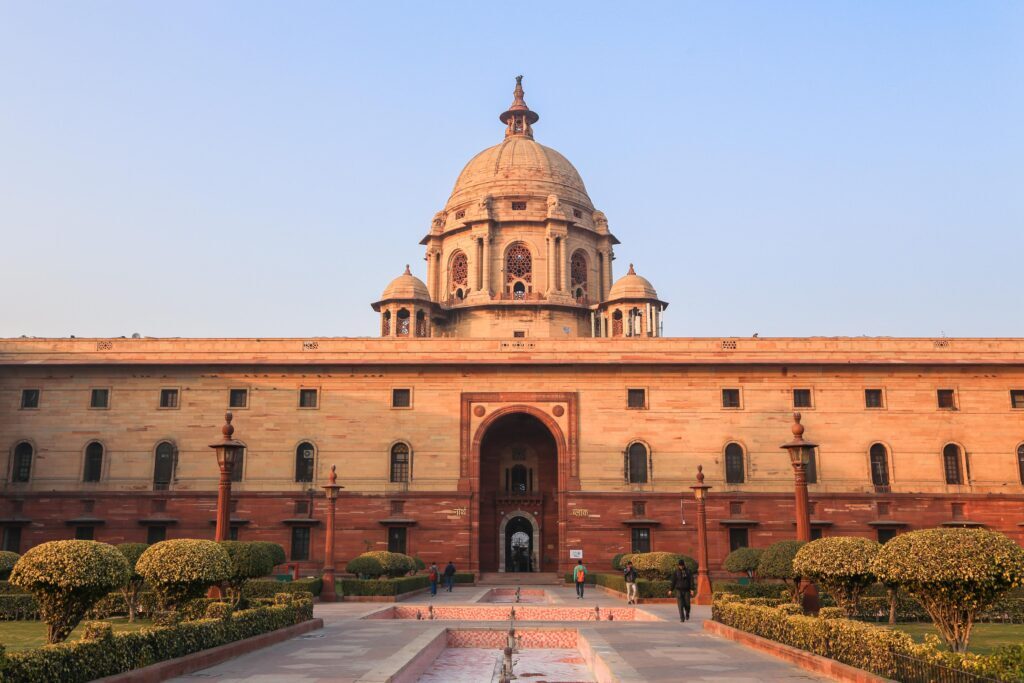The current wave of authoritarianism across the world contains a strong message: One cannot rely on good faith politics alone. Codification of conventions and strengthening the voice of the Opposition is of utmost importance for democracies. India desperately needs to reform its Parliament to make it better.
An oft-repeated view in the face of India’s increasingly assertive right-wing majoritarianism is that democracy is the rule of the majority after all: “Why question the expression of the majority’s will?” This perception of democracy is deeply flawed because it confuses democracy with a majoritarian government. But it does force us to ponder over the importance of the will of the electoral minorities as represented by the Opposition in Parliament.
The recent monsoon session of the Indian Parliament saw desperate Opposition MPs standing on tables and protesting while the government continued to bulldoze legislation. Given the significant role of the Opposition in Parliament, why were they not able to get the government to address their concerns? Are they ill-equipped to hold their ground in the face of an overwhelming majority?
In the face of all this, many have often spoken about the need for parliamentary reform, which should ideally start with empowering the Opposition and strengthening their voice in Parliament. Once the balance is restored, it’s easier to build on it and reform the Parliament further. So how can we ensure that the Opposition can stand their ground in Parliament?
Speaker and Deputy Speaker
We can start with the office of the speaker – a person integral to the functioning of the lower chamber of Parliament. Like many features of the Indian Constitution, the Constituent Assembly took inspiration for the post of the speaker from the UK. This post has its roots in the Government of India Act, 1919. While the speakers of both countries function in a similar manner, one convention which India didn’t adopt was to strictly ensure that the speaker is a non-party person.
The speaker of the House of Commons in England has to resign from their party upon being elevated to the post, and remain politically neutral throughout their term. The speaker of the Lok Sabha, on the other hand, continues to remain on the rolls of the party on whose ticket they were elected. It is not just necessary to adopt the non-partisanship tradition of the House of Commons merely as a convention; India must go a step further than the British and make this mandatory.
A time limit must also be prescribed for the election of the speaker and deputy speaker to avoid the current predicament, where numerous legislative assemblies and even the Lok Sabha have vacancies for crucial posts.
The deputy speaker of the Lok Sabha is, by convention, from the Opposition. There are a number of reforms that could strengthen this post.
The convention of having the post occupied by a member of the Opposition should be given statutory backing, so as to ensure that the House cannot be presided over by a deputy speaker from the ruling party or coalition. This would force the government to arrive at a compromise with the Opposition and respect their vote, while also requiring the Opposition to unite. The newly-elected deputy speaker too should abide by the symbolic gesture of resigning from their party.
Constitutionally, the deputy speaker is not subordinate to the speaker but can preside when the speaker is not present. If one intends to empower the Opposition, the deputy speaker too must be empowered. If neither the speaker nor the deputy speaker are subordinate to each other and are equally accountable to the House, wouldn’t it be better to allow them to preside over the House for equal hours? Can’t a provision along these lines be adopted, at least during the term of governments that have a single-party majority?
The relegation of the deputy speaker to a ceremonial post must change. They must be equally responsible for the functioning of the House as the speaker. Impartiality cannot be guaranteed with the present provisions. But if the speaker and deputy speaker are elected from the ruling party and the Opposition respectively and are given equal footing, they can check each other’s authority and maintain some semblance of power for the Opposition, even in the face of a brute majority.
This proposal may seem radical, but it has its roots in the rationale that one person can never be fully objective or free of bias. One can only introduce objectivity by bringing an opponent into the mix, thereby creating a system of checks and balances.
Similar changes should be introduced for the chairperson and deputy chairperson of the Rajya Sabha. Reforms in the offices which oversee the activity of Parliament can go a long way in checking the powers of the majority. Ensuring their impartiality is of utmost importance.
Parliamentary Committees
Another significant reform that the Parliament needs is that of mandatory scrutiny of all laws by parliamentary committees. Parliamentary committees function as mini-parliaments, where MPs can set politics aside and get down to the minutiae of policy.
The limitations of a crowded Parliament floor can be overcome in these committees, which are known for their exhaustive and detailed reports on matters referred to them. When a piece of legislation is referred to the committees, it returns with significant value addition, as MPs from across the political spectrum can discuss and debate it in a comparatively informal environment, without being bound by party whips.
The Modi government’s disregard for these committees is clearly evident in the data produced by the Congress’ chief whip Jairam Ramesh. Only 27 percent and 12 percent of bills introduced by NDA-I and NDA-II have gone through parliamentary committee scrutiny, compared to 60 percent and 71 percent during UPA-I and UPA-II respectively. The passage of sketchy and ineffectual laws has caused even the Chief Justice of India to call out the government.
Parliamentary committees must mandatorily scrutinise laws, or at least a good percentage of laws, so as to not make the floor of Parliament irrelevant.
Empowering the Opposition too much can also spell disaster in the form of unstable governments and obstruction of Parliament. But measures could be derived to specifically apply when a government is in power with a single-party majority.
The current wave of authoritarianism across the world contains a strong message: One cannot rely on good faith politics alone. Codification of conventions and strengthening the voice of the Opposition is of utmost importance for democracies.
One must note that even a majority government in India does not represent the majority of the country. The system of elections for the Lok Sabha and legislative assemblies in India does not give an elected lawmaker an absolute 51 percent majority over his/her opponents. Instead, the first-past-the-post system just requires that they get more votes than their many competitors.
Therefore, in reality, only if the Opposition and the ruling parties work together can Parliament represent the majority of the country. Therein lies the need to empower the Opposition, balance the power equations, and get Parliament to perform its functions impeccably.
Siddharth Mohan is a student at St. Joseph's College Autonomous, Bangalore. He is currently pursuing a Bachelor's degree in Economics, Political Science and Sociology.


